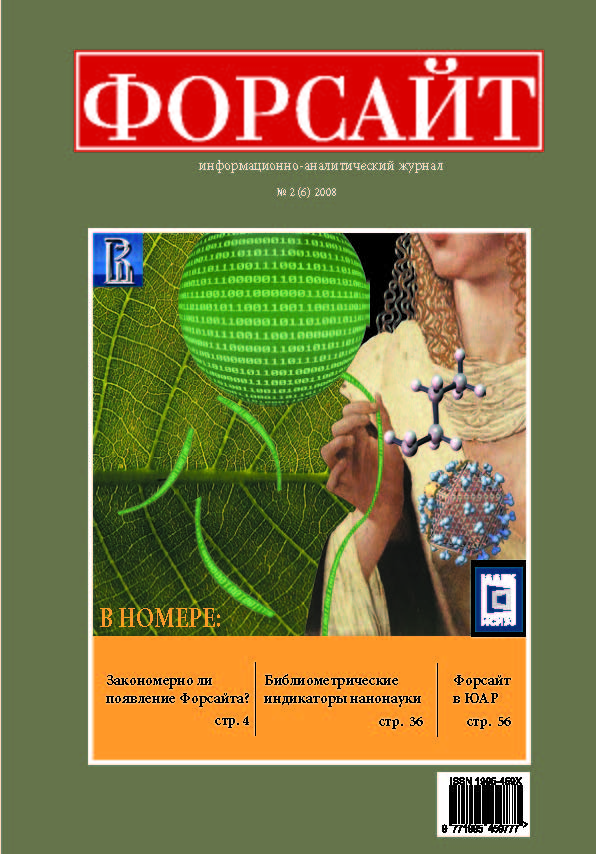Abstract
The authors answer the question yes. This argument is justified by the history of the evolution of mankind’s perceptions about the future. It is also stressed that civilization in its development came to a critical point, which may culminate in a collapse or a breakthrough in the future. The consequences are heavily dependent on the decisions taken today. The desired future can be achieved only if the key actors of society have an agreed vision for the future. To provide such a vision is the main aim of Foresight. The paper consider distinctions of Foresight from traditional forecasting, its evolution and consequent increasing of impact, allowing Foresight to remain an adequate tool to answer the complex challenges of social development.
References
Amanatidou E. The self-enforcing circle of knowledge society characteristics, foresight impacts and participatory governance. Paper presented at the 9th ICTPI conference, Santorini, June 18-21, 2006.
Amanatidou E., Guy K. Interpreting foresight process impact: Steps towards the development of a framework conceptualizing the dynamics of foresight systems / Technological Forecasting and Social Change, May 2008, v. 75, № 4, p. 539-557.
Armstrong J.S. Long-Range Forecasting (2nd ed.). 1985.
Cuhls K. From Forecasting to Foresight Processes - New Participative Foresight Activities in Germany / Journal of Forecasting, 2003, № 22, p. 93-111.
Emerging Science and Technology Priorities in Public Research Policies in EU, US and Japan. Brussels: European Commission, 2006.
Georghiou L. Foresight in Science and Innovation. Paper presented at the 3rd International Conference on Foresight, Tokyo, Japan, 2007.
Georghiou L. The UK Technology Foresight Programme / Futures, 1996, v.28, №.4, p. 359-377.
Georghiou L. Third Generation Foresight - Integrating the Socio-economic Dimension. Paper presented at the International Conference on Technology Foresight, Japan, March 2001.
Irvine J., Martin B. R. Foresight in Science, Piсking the Winners. London: Dover, 1984.
Martino J. P. Technological Forecasting for Decision Making (2nd ed.). New York, Amsterdam, Oxford: North-Holland, 1983.
National Institute of Science and Technology Policy (NISTEP). Retrieved from http://www.nistep.go.jp/IC/ic071119/pdf/1-1_Georghiou.pdf.
Royal Institute for Engineering Science of the Netherlands (KIVI). Foresight Conference «Present needs future options», 2-3 December 2004. Retrieved from http://www.costoekomstverkenningen.nl/foresightconference/programme.html.
Van der Meulen B., De Wilt J., Rutten J. Developing a future for agriculture in the Netherlands /Journal of Forecasting, 2003, v. 22, p. 219-233.
http://spkurdyumov.narod.ru/KurdyumovSergPavlovich.htm.
http://www.merriam-webster.com/dictionary/Forecasting.
Европейское исследовательское пространство (интервью с Р.Бургером)/ Форсайт, 2007, №1, с. 74-79.
Кларк Ч.А. Предисловие к книге Эрвина Ласло «Макросдвиг (К устойчивости мира курсом перемен)». М.: Тайдекс Ко, 2004.
Кукушкина С.Н. Метод Дельфи в Форсайт-проектах / Форсайт, 2007, №1, с. 68-72.
Ласло Э. Макросдвиг (К устойчивости мира курсом перемен). М.: Тайдекс Ко, 2004.
Моисеев Н.Н. Избранные труды. (в 2-х т.). Т.2. Междисциплинарные исследования глобальных проблем. М.: Тайдекс Ко, 2003.
Моисеев Н.Н. Универсум. Информация. Общество. М.: Устойчивый мир, 2001.
Портер М. Международная конкуренция. М.: Международные отношения, 1993.
Управление наукой в странах ЕС. В 2-х т. М.: Наука/Интерпериодика, 1999, т. 2.

This work is licensed under a Creative Commons Attribution 4.0 International License.

